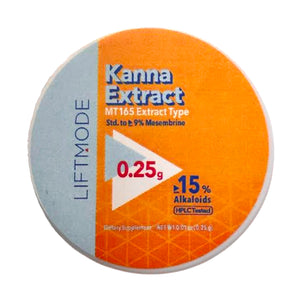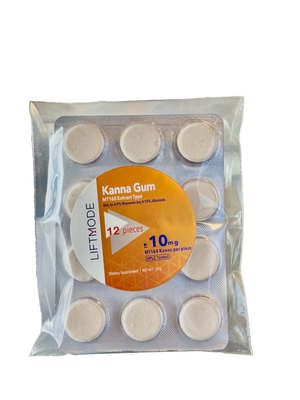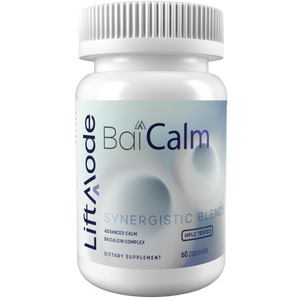Green tea has been around for thousands of years and has been used originally as a medicinal herb. Today, green tea is popular for a variety of perceived health benefits. These include strong immune boosting properties
[1], weight loss assistance and lowering of blood pressure and blood sugar levels.
[2]
Green tea is well tolerated in most people and there are currently very few side effects and medical interactions that are associated with green tea extract. Most common side effects come from the caffeine content and these include stomach irritation, headaches, sleeplessness and irritability.
![]()
Common Side Effects
Green Tea and Stomach Irritation
Green tea contains a significant amount of caffeine which is known to have a laxative effect. Research suggests that green tea may cause stomach irritation when brewed too strongly or consumed on an empty stomach.
[3] The consumption of less than 500 mg of green tea extract over the course of the day is, however, unlikely to cause side effects.
Green Tea and Sleep Disturbance
Caffeine is found in green tea and has been shown to interfere with sleep.
[4] Research suggests that the consumption of green tea may lead to poorer sleep quality and increased levels of self-rerouted fatigue.
It is therefore recommended to rather consume green tea during the day to avoid caffeine-induced sleep disturbances at night.
Green Tea and Iron Levels
Green tea including most other herbal teas (excluding rooibos tea) contain compounds called tannins which have been associated with lower iron levels.
[5]
Therefore, it is recommended that iron supplements should not be ingested together with green tea supplements
[6] and that green tea and green tea extracts be taken between meals, not with meals. Further recommendations suggest that green tea should be taken at least 1 hour before and/ or after meals.
Majority of the research on green tea and iron status has been done using brewed green tea. However, given that green tea extracts tend to have higher concentrations of active compounds, the above recommendations should be applied when taking green tea extract supplements.
Green Tea and Liver Health
An increasing number of studies have identified an association between large amounts of Green Tea extract and damaging effects on our livers
[7] The limitation of these studies, however, is that the supplements used in the trials were “multi-component products”, and they were unable to pinpoint the liver side effects to the Green Tea Extract specifically.
Due to miseducating research findings, the recommendation is for consumers and healthcare professionals to be cautious when using concentrated green tea extract products due to potential liver damage risks.
[8]
![]()
Common Drug Interactions
Green tea extract may interfere with a few medications and should therefore be taken with caution in those who have high blood pressure, low iron levels and blood thinning conditions.
Blood Pressure and Blood Thinning
Research suggests that green tea extracts may interfere with the absorption of some blood pressure medications. Green tea extorts should therefore be taken with caution for individuals on blood pressure medication.
Vitamin K is plays an important role in blood clotting and is present in green tea. The amount of vitamin K in different green tea products will vary but it is nonetheless recommended that individuals on blood-thinning medication should take green tea products with caution due to its vitamin K content.
[9]
Green Tea and Cholesterol
Cholesterol is a fat that is essential in our bodies but high levels of this fat can significantly increase the risk of adverse health outcomes. In a large review of Green Tea interactions it was found that green tea significantly reduced the absorption of specific cholesterol medications.
[10] Caution should be made if you are currently taking cholesterol medication.
Green Tea Extract and Iron Supplements
As discussed above, it is recommended that green tea extracts should not be taken during meals to prevent interference with iron absorption. The same applies to iron supplements and therefore iron supplements should not be ingested together with green tea components.
[11]
Green Tea and Folic Acid
Research suggests that the consumption of green tea can lead to a 39.9% reduction in folic acid absorption when compared with black tea or water.
[12] Due to the importance of folic acid during pregnancy, it is recommended to drink green tea with caution due to its potential interaction.
Conclusion
In summary, the most common Green Tea extract side effects include stomach irritability, sleeplessness and headaches. It is important to note that these side effects were mostly caffeine-related and it is recommended that green tea extracts should be taken during the day and those with severe caffeine sensitivities should drink green tea with caution.
A tolerable upper intake level of 300mg EGCG/person/day is proposed for food supplements to avoid side effects.
[13]
It is also recommended that if you are currently on medication for high blood pressure, blood thinning, high cholesterol and or low iron levels, that you do not take your medication with green tea extracts as medication interference can occur.
![]()
References:
[1] Graham, HN. (1992) Green tea composition, consumption, and polyphenol chemistry.
Prev Med, 21(3):334-50.
[2] Semeco, A. (2017).
10 Benefits of Green Tea Extract. Healthline. Retrieved from
https://www.healthline.com/nutrition/10-benefits-of-green-tea-extract#section9
[3] Mead M. N. (2007). Temperance in green tea.
Environmental health perspectives,
115(9), A445.
[4] Unno, K., Noda, S., Kawasaki, Y., Yamada, H., Morita, A., Iguchi, K., & Nakamura, Y. (2017). Reduced Stress and Improved Sleep Quality Caused by Green Tea Are Associated with Reduced Caffeine Content.
Nutrients, 9(7), 777.
[5] Hurrell RF, Reddy M, Cook JD. (1999) Inhibition of non-haem iron absorption in man by polyphenolic-containing beverages.
Br J Nutr. 81(4):289-95.
[6] Schönthal, A. H. (2011).
Adverse effects of concentrated green tea extracts. Molecular Nutrition & Food Research, 55(6), 874–885.
[7] Schönthal, A. H. (2011).
Adverse effects of concentrated green tea extracts. Molecular Nutrition & Food Research, 55(6), 874–885.
[8] Sarma, D. N., Barrett, M. L., Chavez, M. L., Gardiner, P. et al., Safety of green tea extracts: a systematic review by the US Pharmacopeia.
Drug Saf. 2008,
31, 469–484.
[9] Ware, M. (2017) Green tea: Health benefits, side effects, and research. Retrieved from
https://www.medicalnewstoday.com/articles/269538.php
[10] Werba, J. P., Misaka, S., Giroli, M. G., Shimomura, K., Amato, M., Simonelli, N., … Tremoli, E. (2018). Update of green tea interactions with cardiovascular drugs and putative mechanisms.
Journal of Food and Drug Analysis, 26(2), S72–S77.
[11] Schönthal, A. H. (2011).
Adverse effects of concentrated green tea extracts. Molecular Nutrition & Food Research, 55(6), 874–885.
[12] Colalto, C. (2010).
Herbal interactions on absorption of drugs: Mechanisms of action and clinical risk assessment. Pharmacological Research, 62(3), 207–227.
[13] Dekant W, Fujii K, Shibata E, Morita O, Shimotoyodome A. (2017) Safety assessment of green tea based beverages and dried green tea extracts as nutritional supplements.
Toxicol Lett. 5;277:104-108
![]()
![]()
![]()




